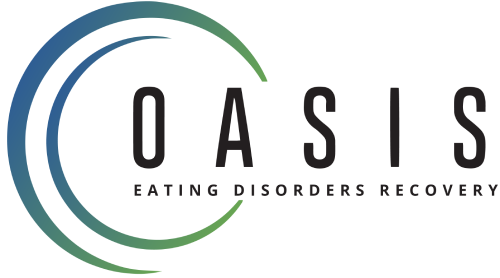Eating disorders are complex mental health conditions that require professional, compassionate care. At Oasis Eating Disorders Recovery in California, our team understands how overwhelming it can be to navigate treatment options for anorexia nervosa, bulimia nervosa, binge eating disorder, or other types of eating disorders. This resource page answers the most common questions about eating disorder treatment in California, helping patients and loved ones better understand what recovery involves and what to expect when seeking professional support.
Eating disorder treatment focuses on restoring both physical health and emotional balance. Since these are life-threatening conditions that affect eating habits, body image, and mental health, care must be comprehensive and collaborative.
Treatment typically includes:
The length and intensity of care depend on the client’s needs, but many programs typically involve going to an inpatient facility 30-90 days or to continue on for several months through outpatient programs.
According to the American Psychiatric Association (APA), the most common types of eating disorders include:
Each disorder presents unique challenges and may require specialized treatment options tailored to the person’s emotional and physical needs.
Eating disorders often start subtly—what seems like “healthy dieting” or exercise goals can escalate into disordered eating or harmful eating behaviors. Warning signs include:
If these behaviors are causing distress or interfering with daily life, a healthcare provider or mental health professional should conduct an assessment and provide a referral for specialized care.
Treatment intensity depends on the individual’s medical stability and level of emotional distress (also called acuity)..
At each level, a multidisciplinary treatment team—including therapists, dietitians, and physicians—works together to support recovery and promote long-term well-being.
Modern eating disorder treatment relies on psychotherapy and evidence-based interventions that address both emotional and behavioral patterns.
Common approaches include:
These therapies are guided by licensed mental health professionals who specialize in mental disorders and eating behaviors.
Medication is not a cure for eating disorders, but it can assist with managing associated mental health conditions such as anxiety, depression, or OCD.
Common medications include:
Medication is typically used alongside psychotherapy, not as a standalone treatment. A psychiatrist or treatment provider will determine what’s safe and effective for each patient.
Family therapy plays a crucial role in eating disorder treatment, especially for adolescents and young adults. Because eating disorders often thrive in isolation, family involvement promotes accountability and understanding.
Through family-based treatment, family members learn to:
This approach helps families transform from anxious observers into active participants in their loved one’s recovery journey.
Without professional help, eating disorders can cause severe, long-term damage to the body and mind. These are serious mental illnesses that often result in medical complications, including:
Because eating disorders impact both physical health and emotional stability, early intervention is essential to prevent irreversible damage and improve well-being.
Supporting someone in recovery can be challenging but deeply meaningful. The best approach combines empathy, patience, and education.
Helpful ways to show support include:
Remember: recovery takes time. Your continued presence and belief in your loved one’s strength can be a powerful motivator through setbacks and progress alike.
Recovery doesn’t end when a person completes a treatment program—it’s an ongoing process. After leaving an inpatient or outpatient setting, patients typically continue psychotherapy, nutritional counseling, and periodic medical care.
Many benefit from:
Sustained recovery requires structure, self-awareness, and consistent self-care. With the right treatment team and support system, most individuals can rebuild a balanced relationship with food, regain healthy weight, and rediscover joy in daily life.
If you or a loved one is struggling with anorexia nervosa, bulimia nervosa, binge eating disorder, or another form of eating disorder, Oasis Eating Recovery in Fresno, California, offers specialized programs for adolescents and adults. Our treatment team includes licensed therapists, physicians, and dietitians who work together to develop individualized treatment plans that address both the physical and emotional aspects of recovery.
We provide several treatment options with an emphasis on nutrition counseling, supervised meals, and holistic care for co-occurring mental health conditions.
To learn more about our programs or to schedule a confidential referral, contact Oasis Eating Recovery today. With the right mental health services, recovery from an eating disorder is possible—and so is a future filled with balance, health, and hope.

We know that asking for help takes courage. Getting in touch is the first step. We’re here for you, no matter what. Once submitted, our admissions team will be in touch within 24 hours.
Or call us directly to get started: (559) 245-6203
Connect with our admissions team over the phone for a confidential conversation to understand your needs and goals.
Together, we’ll determine the level of care that best supports your recovery journey.
We create a comprehensive treatment plan to ensure continued healing and support with group therapy, nutrition, body image groups, individual/family sessions.

I will be back soon